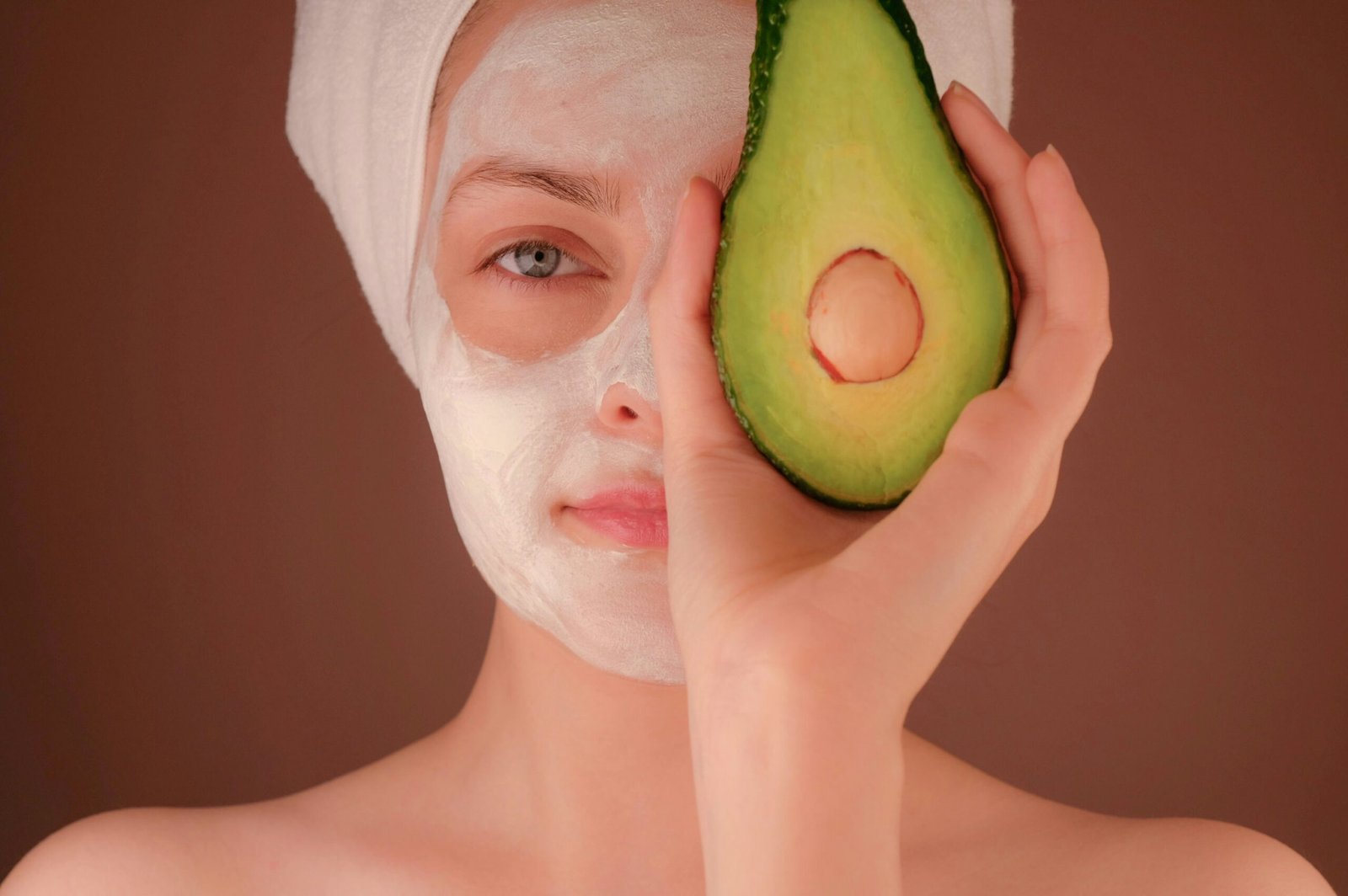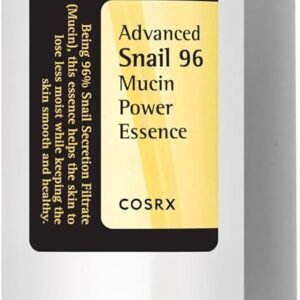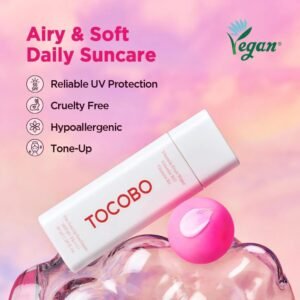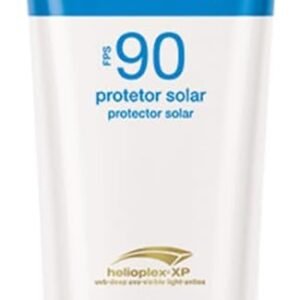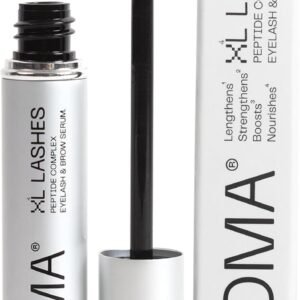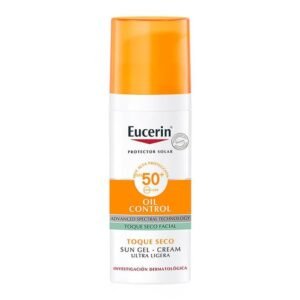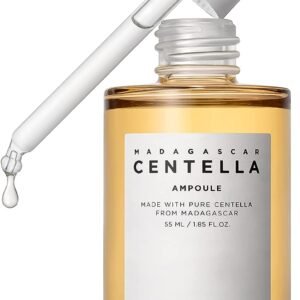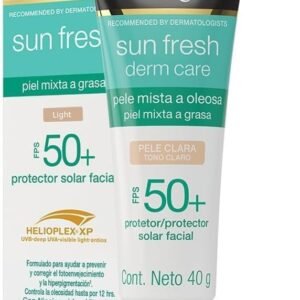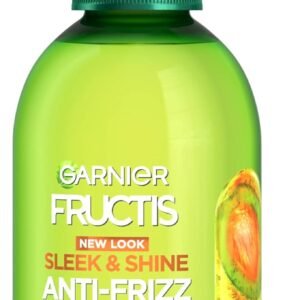Introduction to Natural Ingredients in Skin Care
The skincare industry is witnessing a significant shift towards the inclusion of natural ingredients in product formulations. This growing trend is largely driven by an increasing consumer demand for ‘clean’ and ‘green’ products, as more people become aware of the potential side effects of synthetic chemicals and seek safer, eco-friendly alternatives. As a result, numerous brands are now prioritizing the integration of natural ingredients, aiming to meet the evolving preferences of their customers.
Natural ingredients in skincare refer to components derived from nature, including plants, minerals, and other naturally occurring substances, which are minimally processed. These ingredients are often celebrated for their beneficial properties, such as anti-inflammatory, antioxidant, and hydrating effects, which can enhance skin health and appearance. Moreover, the use of natural ingredients aligns with the broader movement towards sustainability and environmental responsibility, appealing to consumers who are conscious about their ecological footprint.
The trend towards natural ingredients is gaining traction for several reasons. Firstly, there is a growing awareness and concern about the long-term health impacts of synthetic chemicals found in many traditional skincare products. Ingredients such as parabens, sulfates, and phthalates have been scrutinized for their potential to cause skin irritation, hormonal disruptions, and other health issues. As a result, consumers are actively seeking out products that are free from these harmful substances.
Secondly, the rise of holistic wellness has encouraged individuals to adopt a more comprehensive approach to health, which extends to their skincare routines. This approach emphasizes the use of products that are not only effective but also safe and nourishing for the skin. The appeal of natural ingredients lies in their perceived purity and gentleness, which resonate with the growing preference for ‘clean beauty’ products.
Lastly, the influence of social media and digital platforms has played a significant role in spreading awareness about the benefits of natural skincare ingredients. Influencers, beauty bloggers, and skincare enthusiasts often highlight their positive experiences with natural products, further driving consumer interest and demand.
Common Natural Ingredients and Their Benefits
Natural ingredients have become increasingly popular in skincare products due to their numerous benefits and minimal risk of adverse reactions. Here are some of the most widely used natural ingredients and their specific benefits for the skin:
Aloe Vera: Originating from the leaves of the aloe plant, aloe vera is renowned for its soothing and healing properties. It is rich in vitamins A, C, and E, which are antioxidants that help protect the skin from free radical damage. Aloe vera also has anti-inflammatory properties, making it effective in treating sunburn, acne, and minor cuts and abrasions.
Coconut Oil: Extracted from the meat of mature coconuts, coconut oil is prized for its moisturizing and antibacterial properties. It is rich in fatty acids, which help to hydrate and nourish the skin. Additionally, coconut oil has antimicrobial properties that can help reduce skin infections and promote a healthy complexion.
Shea Butter: Sourced from the nuts of the shea tree, shea butter is celebrated for its rich, creamy texture and intense moisturizing capabilities. It is loaded with vitamins A and E, which help to improve skin elasticity and reduce the appearance of fine lines and wrinkles. Shea butter also has anti-inflammatory properties, making it beneficial for soothing eczema and other inflammatory skin conditions.
Tea Tree Oil: Derived from the leaves of the Melaleuca alternifolia plant, tea tree oil is known for its potent antiseptic and anti-inflammatory properties. It is highly effective in treating acne due to its ability to reduce bacteria on the skin and combat inflammation. Tea tree oil can also be used to treat fungal infections and soothe irritated skin.
Chamomile: Chamomile, extracted from the flowers of the chamomile plant, is well-known for its calming and anti-inflammatory effects. It contains antioxidants like flavonoids and terpenoids, which help protect the skin from environmental damage. Chamomile is particularly beneficial for sensitive skin, as it helps to soothe irritation and redness, making it a common ingredient in products designed for delicate skin types.
The inclusion of these natural ingredients in skincare products reflects a growing trend towards more holistic and sustainable beauty routines. Each of these ingredients offers unique benefits that cater to a variety of skin concerns, making them valuable additions to any skincare regimen.
How Natural Ingredients Work in Skin Care
Natural ingredients in skin care have garnered considerable attention due to their perceived benefits and the growing consumer preference for clean beauty products. These ingredients, derived from botanical extracts, minerals, and other naturally occurring substances, interact with the skin in various ways to promote health and appearance.
One of the primary mechanisms through which natural ingredients benefit the skin is through hydration. Ingredients like aloe vera and hyaluronic acid, which is naturally derived, are known for their exceptional ability to retain moisture. Aloe vera, for instance, contains polysaccharides that help bind moisture to the skin, while hyaluronic acid can hold up to 1000 times its weight in water, providing deep hydration.
Anti-inflammatory properties are another significant advantage of natural ingredients. Chamomile, green tea, and calendula are renowned for their soothing effects on irritated or inflamed skin. These ingredients contain bioactive compounds such as flavonoids and polyphenols that help reduce redness and swelling by inhibiting the inflammatory pathways in the skin.
Furthermore, natural ingredients are often lauded for their anti-aging benefits. Ingredients like vitamin C, found in citrus fruits, and retinol, derived from vitamin A, are powerful antioxidants that protect the skin from free radical damage. This oxidative stress is a key factor in the aging process, and by neutralizing free radicals, these natural ingredients can help reduce the appearance of fine lines and wrinkles.
Comparatively, synthetic ingredients also offer skin benefits but often through different mechanisms. For example, synthetic moisturizers like petrolatum create a barrier on the skin to prevent moisture loss, rather than binding moisture like natural ingredients. While effective, synthetic ingredients can sometimes cause irritation or sensitivity, which is less common with natural alternatives.
Overall, the efficacy of natural ingredients in skin care lies in their ability to work harmoniously with the skin’s natural processes, offering hydration, anti-inflammation, and anti-aging benefits. While synthetic components can also be beneficial, natural ingredients often provide a gentler, more holistic approach to skin care.
Advantages of Using Natural Ingredients
Natural ingredients in skincare products offer a multitude of benefits that are increasingly recognized by consumers and dermatologists alike. One of the primary advantages is the reduced risk of skin irritation and allergies. Unlike synthetic chemicals, which can often cause adverse reactions, natural ingredients like aloe vera, chamomile, and green tea are known for their soothing and anti-inflammatory properties. These ingredients are less likely to trigger allergies or irritate sensitive skin, making them a safer choice for a broader range of skin types.
Environmental sustainability is another significant benefit of using natural ingredients in skincare formulations. Synthetic chemicals and non-biodegradable substances not only harm the skin but also pose a threat to the environment. Natural ingredients, on the other hand, are typically derived from renewable resources and are biodegradable. This means that when they wash off our skin and enter the water system, they break down more easily and do not contribute to pollution. Brands committed to sustainability often source their ingredients ethically, further reducing the environmental footprint of their products.
Moreover, the absence of harsh chemicals in natural skincare products is a notable advantage. Conventional skincare products often contain parabens, sulfates, and synthetic fragrances, which can strip the skin of its natural oils and lead to long-term damage. Natural ingredients, such as coconut oil, shea butter, and jojoba oil, provide essential vitamins and nutrients that nourish and hydrate the skin without causing harm. Consumer testimonials frequently highlight the visible improvements in skin texture and appearance when switching to natural skincare products. For instance, a user of a natural aloe vera gel reported, “My skin feels more hydrated and less irritated since I started using this product. The difference is truly noticeable.”
Incorporating natural ingredients into skincare not only promotes healthy, glowing skin but also aligns with a growing movement towards eco-conscious living. As awareness of the benefits continues to spread, it is expected that more consumers will gravitate towards products that are both kind to their skin and the planet.
Disadvantages and Challenges
While the integration of natural ingredients in skin care products has garnered significant popularity, it is crucial to recognize the associated disadvantages and challenges. One primary concern is the potential for allergens. Natural ingredients, though often perceived as gentler, can still trigger allergic reactions or irritations in some individuals. For example, essential oils, a common component in natural skin care, might cause sensitivities, leading to redness, itching, or discomfort. This underscores the importance of consumers conducting patch tests before fully incorporating new products into their routines.
Another challenge lies in the variability of ingredient potency. Unlike synthetic compounds that are engineered for consistency, natural ingredients can vary significantly based on factors such as harvest conditions, processing methods, and geographic origin. This variability can lead to inconsistencies in product efficacy, making it difficult for consumers to predict the outcome of using a particular natural skincare product. Manufacturers must therefore implement stringent quality control measures to ensure the uniformity and reliability of their offerings.
Cost is another significant factor. Natural ingredients often come with higher production costs due to sustainable farming practices, ethical sourcing, and more complex extraction methods. These expenses are typically passed on to the consumer, resulting in higher prices for natural skincare products. While many people are willing to invest in natural options for their perceived benefits, the cost can be prohibitive for some, limiting accessibility.
Additionally, natural skincare products tend to have shorter shelf lives compared to their synthetic counterparts. Without the use of artificial preservatives, these products are more susceptible to microbial growth and degradation over time. This necessitates careful storage and faster usage, which can be inconvenient for consumers. Companies must balance the formulation of effective preservatives with maintaining the natural integrity of their products.
In summary, while natural ingredients in skincare offer many advantages, they are not without their challenges. Potential allergens, variability in potency, higher costs, and shorter shelf lives represent significant considerations. Understanding these drawbacks allows consumers to make informed decisions and navigate the natural skincare market more effectively.
Consumer Perception and Market Trends
Consumer perception significantly drives the burgeoning market for natural skincare products. Increasingly, consumers are prioritizing health and environmental consciousness, leading them to seek out products with natural ingredients. This shift is evident in the rise of the ‘clean beauty’ movement, which emphasizes minimal, non-toxic, and sustainably sourced ingredients. As a result, brands are rethinking their product development and marketing strategies to align with these values.
The ‘clean beauty’ trend has propelled the demand for transparency in ingredient sourcing and product formulations. Brands now highlight their commitment to natural ingredients through clear labeling and marketing campaigns that emphasize purity and sustainability. This approach not only appeals to eco-conscious consumers but also builds trust and brand loyalty. Additionally, the trend has spurred innovation in the industry, with companies investing in research to discover new natural ingredients and sustainable manufacturing processes.
Demographic insights reveal that interest in natural skincare products spans various age groups, but it is particularly pronounced among Millennials and Gen Z. These younger demographics are not only more likely to prioritize personal health and environmental sustainability but are also adept at leveraging digital platforms to research and verify product claims. Social media influencers and beauty bloggers play a pivotal role in shaping their purchasing decisions, further driving the popularity of natural skincare products within these groups.
Conversely, older consumers, including Baby Boomers and Gen X, are gradually embracing natural skincare as well. This demographic appreciates products that promise gentle, effective care without the risks associated with synthetic chemicals. They are increasingly willing to invest in premium natural skincare brands that deliver on these promises, contributing to the market’s overall growth.
In summary, consumer perception is a powerful force in the natural skincare market. The clean beauty movement, driven by a desire for health, transparency, and sustainability, has reshaped product development and marketing strategies. With a diverse range of age groups showing interest, the future of natural skincare looks promising, with continued innovation and growth on the horizon.
Case Studies of Brands Embracing Natural Ingredients
In recent years, the skincare industry has witnessed a significant shift towards the incorporation of natural ingredients, driven by consumer demand for healthier and more sustainable products. Several brands have emerged as pioneers in this movement, successfully integrating natural ingredients into their product lines. This section examines a few notable case studies, highlighting their unique approaches, product offerings, marketing strategies, and consumer reception.
Tata Harper: Known for its commitment to 100% natural and non-toxic skincare, Tata Harper has built a reputation for luxury and efficacy. The brand’s philosophy revolves around transparency and purity, sourcing over 300 raw ingredients from more than 68 countries. Key products like the Regenerating Cleanser and Rejuvenating Serum are formulated with potent botanicals such as willow bark and calendula. Tata Harper’s marketing strategy emphasizes its farm-to-face approach, resonating with consumers who value traceability and authenticity. The brand has garnered a loyal customer base and critical acclaim, reflecting its success in the natural skincare market.
Drunk Elephant: Another prominent player, Drunk Elephant, focuses on biocompatibility, using ingredients that the skin recognizes and can absorb. The brand avoids what it calls the “Suspicious 6” (essential oils, drying alcohols, silicones, chemical sunscreens, fragrances/dyes, and SLS), opting instead for natural alternatives. Products like the Virgin Marula Luxury Facial Oil and the C-Firma Day Serum are packed with antioxidants and vitamins derived from natural sources. Drunk Elephant’s playful branding and educational marketing campaigns have resonated with a broad audience, fostering both consumer trust and brand loyalty.
Herbivore Botanicals: Herbivore Botanicals stands out for its minimalist and eco-friendly approach to skincare. The brand emphasizes the use of raw, natural ingredients without fillers, ensuring each product is concentrated and effective. Popular items such as the Blue Tansy Resurfacing Clarity Mask and the Lapis Facial Oil leverage the benefits of plant-based components like blue tansy and squalane. Herbivore Botanicals’ clean and visually appealing packaging, coupled with a strong social media presence, has attracted a dedicated following that appreciates both the aesthetics and efficacy of natural skincare.
Youth to the People: Youth to the People integrates superfoods into its formulations, promoting a holistic approach to skincare. The brand’s philosophy centers on health, wellness, and sustainability, using ingredients like kale, spinach, and green tea in products like the Superfood Cleanser and the Adaptogen Deep Moisture Cream. Youth to the People’s marketing highlights the synergy between nutrition and skincare, appealing to health-conscious consumers. The brand’s ethical practices and commitment to social causes further enhance its appeal, leading to positive consumer reception and robust growth.
These case studies demonstrate diverse strategies and philosophies in the successful integration of natural ingredients into skincare products. By prioritizing transparency, efficacy, and sustainability, these brands have set new standards in the industry, reflecting a broader shift towards natural and eco-conscious beauty.“`html
Future of Natural Ingredients in Skin Care
The future of natural ingredients in skincare appears promising, driven by continuous innovations and an increasing consumer demand for products that are both effective and environmentally friendly. Emerging ingredients, such as adaptogens, which include herbs and mushrooms that help the body resist stressors, and bio-fermented ingredients, are gaining traction. These novel ingredients are being explored for their potential to enhance skin health and overall well-being.
Technological advancements are also playing a critical role in the evolution of natural skincare products. Biotechnology is making it possible to harness the power of nature more efficiently, leading to the development of bioengineered ingredients that offer the benefits of natural components while ensuring sustainability and consistency in product formulations. For instance, lab-grown botanical extracts can potentially reduce the environmental impact associated with traditional farming practices.
Regulatory changes are likely to influence the use of natural ingredients in skincare as well. With growing scrutiny over product safety and efficacy, regulatory bodies worldwide are expected to impose stricter guidelines on the sourcing, manufacturing, and labeling of natural skincare products. This could ensure greater transparency and trust, ultimately benefiting consumers and encouraging brands to adhere to higher standards.
Scientific advancements are continually unveiling new insights into the efficacy and mechanisms of natural ingredients. Research into the microbiome, for example, is revealing how natural ingredients can support the skin’s natural barrier and promote a healthy microbial balance. This could lead to more targeted and personalized skincare solutions, tailored to individual skin types and concerns.
As the trend towards natural ingredients in skincare continues to grow, it is anticipated that manufacturers will increasingly prioritize sustainability, ethical sourcing, and the minimization of environmental impact. This holistic approach not only aligns with consumer values but also supports the long-term viability of the natural skincare industry. The convergence of innovation, regulation, and scientific discovery will undoubtedly shape a future where natural ingredients play a pivotal role in achieving healthier, more radiant skin.
